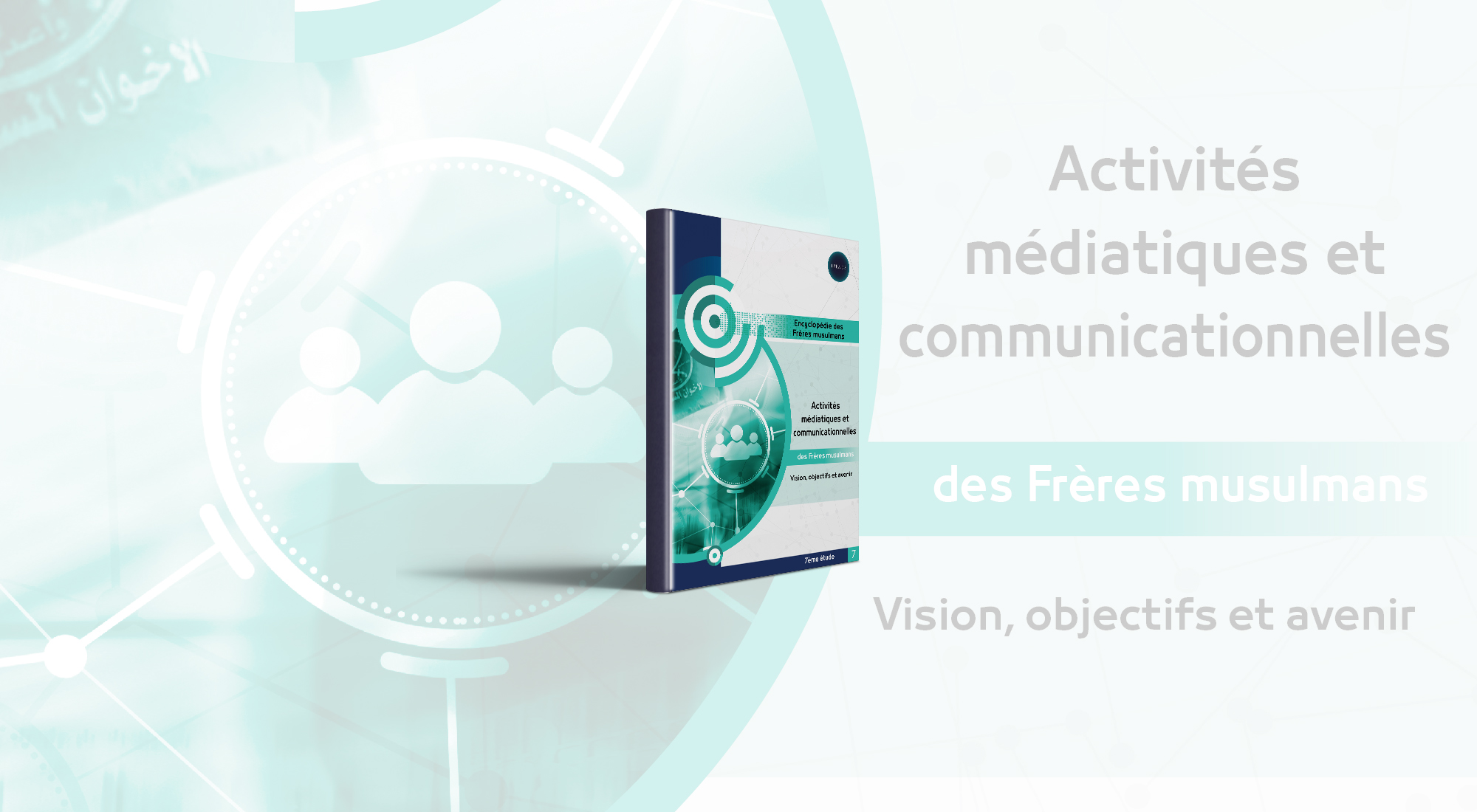In conjunction with its participation, in response to an official invitation, in a hearing at the French Senate on the influence of the Muslim Brotherhood in France, TRENDS Research and Advisory released the French translation of the seventh book of its Muslim Brotherhood Encyclopedia entitled “The Media and Communication Activity of the Muslim Brotherhood… Vision, Goals and Prospects.” The new release analyzes the media and communication activity of the group by monitoring the intellectual tenets of their media discourse and its trends. The book sheds light on the phases of development of the Brotherhood media, which began with traditional means and turned to digital media.
The book, which was also translated into English and German, examines the impact of the media channels on media activity, both individually and collectively, and shows the extent to which it affects recruitment and mass polarization. It also foresees the future of the Muslim Brotherhood’s media and communication effort after June 2013 at the level of mobilization.
The book proves that the Muslim Brotherhood has attached great importance to the media as an effective tool to propagate its ideas since its inception in 1928. The group has made media an important pillar to promote its organizational and advocacy structure. Its functions are represented in a set of goals that the group seeks to achieve, which revolve around spreading the group’s ideology and advocating the tutorship of the world.
The seventh book of TRENDS on the Muslim Brotherhood stated that the group employed communication and media tools that were available at the time of its emergence, especially the press, in spreading the group’s ideas and achieving its mobilization goals of gaining public opinion sympathy. The group believed that this would enable it to penetrate the Egyptian society and other Arab and Islamic societies. So, the Brotherhood used modern social media and digital media tools and platforms as an effective tool that helps it to break the official monopoly of governments for this sector and to spread their ideas faster in Arab societies. The Brotherhood considered the media as an important means of defending the group and improving its image by promoting itself as a moderate group that believes in democracy and public freedoms on the other hand.
The book includes five chapters that monitor the most important phases for the development of the Brotherhood’s media and communication activity. The first chapter traces the history of the development of media and communication operations, while the second chapter discusses the ideological and intellectual foundations of the Muslim Brotherhood’s media discourse. The third chapter reveals the development of the Brotherhood’s media since its establishment in 1928 until the popular revolution of June 30, 2013.
The fourth chapter shows the importance of mass mobilization for the Brotherhood, and the Brotherhood’s media campaigns that dealt with opponents in various ways. The most important tactic here was spreading rumors against everyone who opposes the Muslim Brotherhood group. The Brotherhood’s ideological discourse was linked to the Brotherhood’s main value system, which it seeks to promote among its affiliates. The fifth and final chapter foresees the future of the Muslim Brotherhood’s media. It indicates that the group is facing a major crisis that may lead to its disappearance.
Dr. Mohammed Abdullah Al-Ali, CEO of TRENDS Research and Advisory, stressed the importance of the new publication within the encyclopedia that the Center continues to publish. It includes a series of 35 books. He explained that it is characterized by a comprehensive analysis that considers the national, regional and international contexts, especially the period after the so-called “Arab Spring” events. He added that the seventh book of the encyclopedia reveals the great role played by the Muslim Brotherhood media since the group’s inception in 1928, as one of the most important pillars on which the group is based in its organizational and advocacy structure with the aim of spreading its lethal ideas. He explained that the group advocates a prophecy that tutors the world and leads it through promoting the idea of reviving the Islamic caliphate, and calling for the application of Islamic law.
Dr. Al-Ali said that ten books have been published from the encyclopedia so far and are being translated into about 16 international languages, with the aim of confronting this deviant thought and clarifying its real content.



